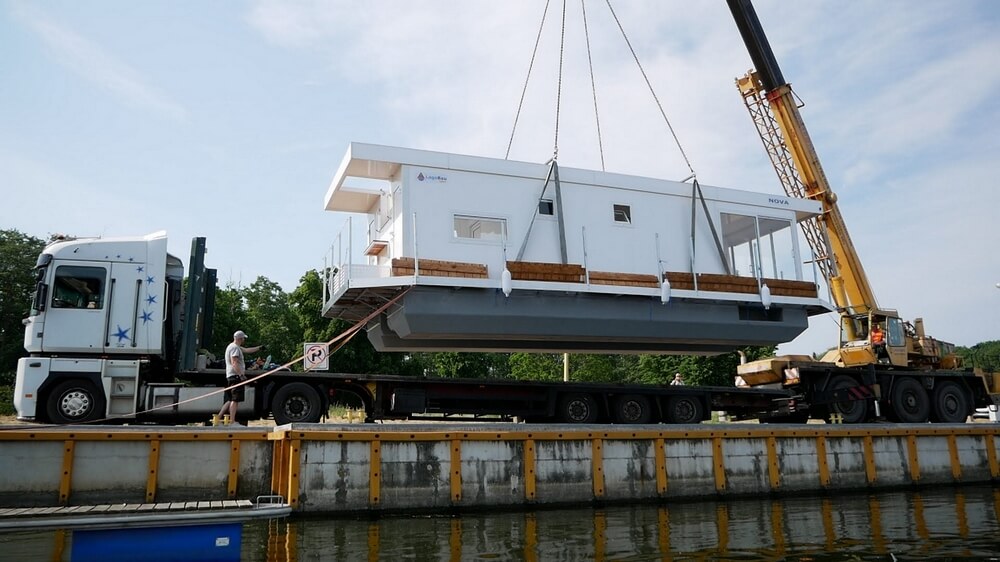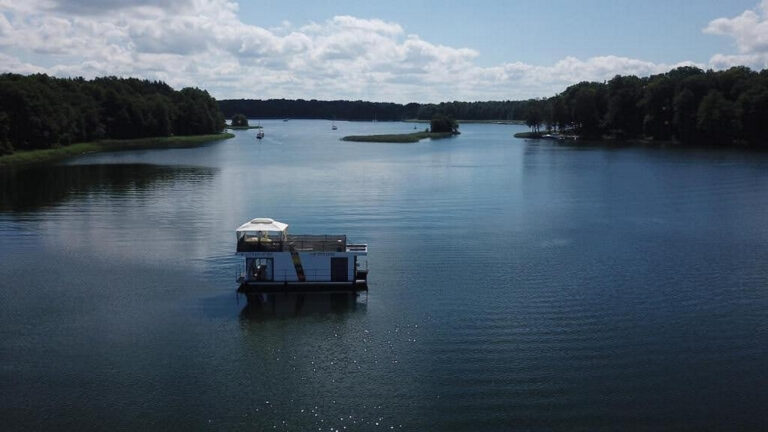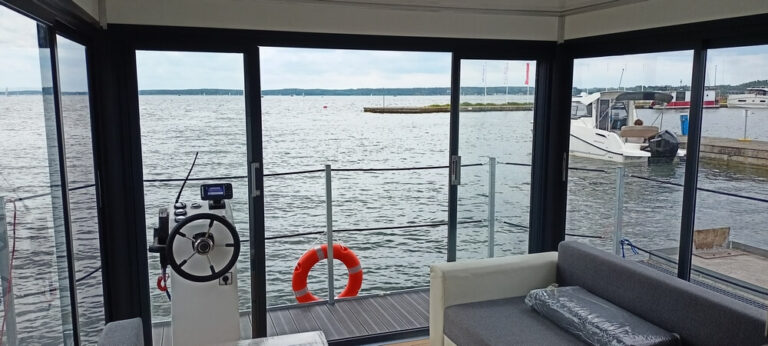
What are housebouts?
Housebout is a name, meaning floating house, which comes from a combination of the English words “house” and “bout”, meaning house and boat. Floating houses are an excellent alternative to traditional yachts, offering a much less comfortable space considering the living conditions.
Housebouts are homes fully equipped with all the necessary features for comfortable living, such as kitchen, bathroom, electronics and even photovoltaic panels! When holidaying in one of the floating homes, you can feel like you’re staying in a hotel, yet like you’re on a luxury yacht. This is a great solution for all sailing enthusiasts who want to relax on the water while having all the comforts of a hotel.
Floating houses – how are they constructed?
They are built on a concrete or steel platform, which is prepared to be as buoyant as possible and to lift the weight of the entire house above the water. The structure should be lightweight, which is why they are most often made in the Canadian style, which means that the walls are made of wood. Additionally, they have all the attributes of real houses – very often they even have micro sewage treatment plants! Houseboats are designed so that you can live in them seasonally or year-round. However, it is important to find a suitable mooring if you are thinking of year-round living.
For whom is a houseboat suitable?
It is an alternative way of living or spending the warmer months of the year. Such solutions are very popular in our western neighbours as well as in France and Holland. Living in ahousebout certainly counts as living in an unusual property. This is found in the trend of looking for innovative housing solutions such as minimalist micro houses, houses on wheels and floating houses. Have you never thought about dropping everything and going away? Change your place of residence overnight, away from the hustle and bustle of the city? Such possibilities are created by housebouts.
Benefits of housebouts.
The first advantage worth mentioning is that there is no requirement for planning permission and no land use taxes. Unfortunately, due to the unusual nature of this dwelling, you have to reckon with several visits from the office, because in the eyes of the law floating houses are watercraft, not real estate.
Another advantage is the speed of their construction. Thanks to the Canadian technology, housebouts, unlike brick houses that dominate in Poland, are built very quickly. This is because the most time-consuming part is the creation of the base, on which our whole floating house floats, while the rest of the structure can be built even within one month..
Mobility is what completely sets them apart from traditional properties. We can move by changing moorings virtually without restriction. The only difficulties may be bridges or places where the house gets stranded.
Another advantage is the self-sufficiency of housebouts. They are equipped with solar panels, gas cylinders and micro-treatment plants and need virtually nothing else.
Under current law, unfortunately, you cannot register in a floating house, which can be a bit of a limitation.


